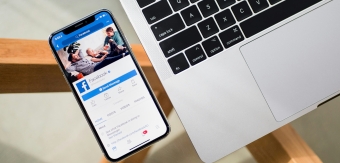As sustainability has become a global business imperative, brands are trying to avoid falling prey to greenwashing. In the rush to prove their environmental credentials, brands and businesses are making exaggerated claims, false assertions, and vague and misleading promises.
Nearly half of UK marketing professionals are wary of working on sustainability marketing campaigns because they fear accusations of greenwashing, according to research from the Chartered Institute of Marketing. Marketers must get to grips with the issue and do better at explaining their sustainability credentials.
Hardly a week goes by without some egregious new instance of brand greenwash.
Just last month, a Dutch court found that airline KLM had misled customers with vague claims that painted “an overly rosy picture” of its green aviation fuel. A KLM billboard featured a child on a swing and the line “join us in creating a more sustainable future.” The court ruled that KLM failed to explain how flying with the airline helped sustainability.

A month before that, the UK’s Advertising Standards Authority rapped car brand MG for claiming that its plug-in hybrid model was zero emissions – forgetting to mention the tailpipe emissions produced when it was not driven on an electric motor.
All such claims are undoubtedly made with the best of intentions. However, applying the usual rules of brand superiority to the issue of sustainability is asking for trouble.
The desire to use simple, catchy phrases such as “zero-emissions”, “green”, and “sustainable” increases scepticism and dents trust in the entire field of sustainability. Consumers are increasingly seeing it as hype. Only 36% of respondents to a Kantar survey thought brands were proposing meaningful solutions to humanity’s environmental and social issues.
Consumers are becoming adept at identifying the signs of fake sustainability. Images of rolling fields and beautiful skies, buzz words such as healthy, natural and eco-friendly, vague language and meaningless phrases immediately signal that something is up. Eventually, they’ll simply switch off from believing all green claims.
So, it is time for an honest and adult discussion about sustainability. Swaggering self-confidence and boastful claims of product superiority must be replaced by a more thoughtful and constructive perception. Brands are one part of a broader solution, not God’s gift to sustainability.
It’s worth examining the ways in which brands have effectively promoted their sustainability credentials while avoiding evasion and exaggeration.
One way to cut through is to focus on accountability. In Apple’s ‘Mother Nature’ film, CEO Tim Cook and a group of Apple executives are held to account on their environmental impacts by the stern, imposing character of Mother Nature.
The film puts the brand in a deferential position to the indomitable forces of the climate and acknowledges that mere humans should act with respect before nature. Critics panned the video as further greenwash, but its claims were backed up with data, and it was fairly bulletproof. It was specific and transparent rather than vague and self-congratulatory. It was all about the data.
Starting a conversation engages consumers. A recent campaign from IBM posed the question – what if buildings could tell you how they could be more efficient? The video poses some “what if” rhetorical questions to engage the audience.
The conversational tone establishes empathy, while promoting tangible benefits for saving energy, money and emissions. It acknowledges that sustainability is a shared value, and the call to action at the end encourages audience engagement.
Frank & Honest Coffee uses a mock sustainability advert to highlight some of the hypocrisy around the issue while also demonstrating its own commitment, using humour to make the point.
Being transparent is a critical factor when it comes to sustainability marketing. Oat milk brand Oatly’s Wow No Cow Toni TV ad showcases its playful and relatable brand personality and breaks with traditional marketing norms. But is also offers transparency on its climate footprint and challenges dairy brands to share theirs.
Educating consumers helps push sustainability into the mainstream. Ikea’s Sustainable Living Shops addresses consumer ignorance about the environment and educates them on how to preserve it. And its Live Lagom Collection brings communities together to share tips on how to live more sustainably and ideas on how to reuse and upcycle products.
Unilever partnered with The Economist Educational Foundation to inspire young people to learn about plastic and packaging with a handbook setting out ways to take action. There’s also Adidas X Parley, a partnership with an NGO to raise awareness about the beauty and fragility of the oceans.
These campaigns show that the best way forward is for brands to break out of the norms of green claims and level with customers, look them in the eye and be honest about the scale of the task ahead.
Consumers are confused by the ever-changing claims and language about sustainability. By educating audiences on how to navigate sustainability and giving them the tools to succeed, brands can take the consumer’s side. They’ll avoid greenwashing and earn the respect of consumers, regulators, and employees.
By Wybe Magermans, Director of Growth at WMH&I






